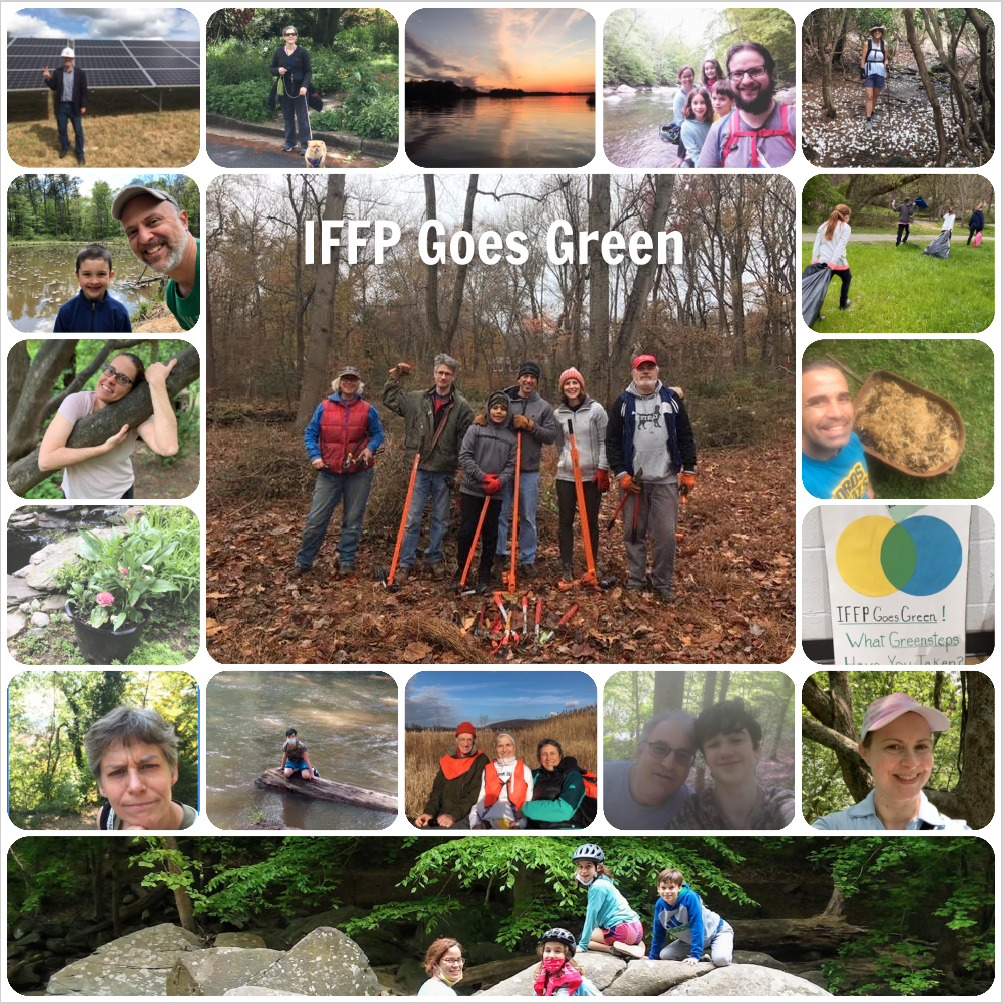“We have reached an unprecedented, critical time in the existence of the earth due to climate change; toxins in our food, drinking water, and environment; plastic waste in our oceans that disrupts ecosystems and kills marine life; and significant loss of forests, among other matters. Never before has our world experienced such violent superstorms, rising sea levels, and massive loss of lives, both human and non-human. Furthermore, this devastation falls heaviest on the marginalized of our earth. “Led by the fossil fuel industry, we are running Genesis in reverse.” 1If we do not take action now, tikkun olam, to repair our world, our children and their children will never forgive us for the devastation we have created and left for them. As stewards of the earth, we are in the fight of our lives, for our children’s future. A failure to act may well be considered a spiritual/religious failure. “It is immoral to willfully cause injury to all life on earth and condemn future generations to a struggle for survival on a planet that once lovingly provided for the sustenance of all of God’s creatures.” 2
Science is clear that the world that nourishes us is under an existential threat by man-made activity. Our Jewish and Christian faith traditions, along with reasoned thought, require us to act.
IFFP says “Yes, we will:
- Strengthen our spiritual interconnectedness with all life and all things that we call nature,
- Become more aware of the impacts that we as humans have on the natural world, and
- Act and live in ways that preserve and heal our precious ecosystems – those systems which sustain us and all life forms on this one Earth.”
The Beginning of the Journey
A committed group of IFFP members, the Environmental Working Group (EWG), have been regularly meeting over the past couple of years investigating the connections between theology and environmental stewardship and finding practical ways to act on those principles. Building on that work and with Board approval in 2019, IFFP began a more formalized process of environmental stewardship called GreenFaith Certification.
Some actions toward the certification that IFFP has taken to date
- Volunteers provide FairTrade coffee, reusable coffee cups and composting and recycling services at every Gathering.
- COA led a stream clean-up with the youth.
- EWG held book discussions on: “Hospitable Planet” by Stephen A. Jurovics, “The Greening of Faith” by JE Carroll, “The Omnivores Dilemma” by Michael Pollan and “Active Hope, How to Face the Mess We’re in without Going Crazy” by Joanna Macy.
- EWG provided several climate and environmental presentations at the Adult Group, and Earth day speakers at The Gathering. Two recent presentations included: 1) Jose Dominguez, Director of Development Partnerships at League of Conservation Voters led an adult group discussion on environmental justice and 2) youth from Blair High School gave a talk and led discussion on the Youth Climate Summit USA, a network of high school students dedicated to one goal: providing young people with the skills and connections we need to be better climate advocates.
- Volunteers began
review of environmental stewardship themes in our Sunday School curriculum. Additionally, the EWG provided copies of “The Greening of Faith” to classes. - EWG provides regular environmental tips to members in the Weekly Bulletin.
- Redbud seedlings were handed out to IFFP families on Earth Days.
- Clergy regularly include environmental focused scripture readings and Reflections at the Gathering.
Our commitment to Greenfaith Certification includes IFFP’s individual members making positive changes so, what can members do at home?
Our homes and our own
- Learn the three Rs: Reduce, Reuse, and Recycle. Americans represent only 5% of the world’s population but produce 30% of the planet’s garbage.
- Shop for groceries at farmers’ markets or stores that sell locally produced food. This would save billions in fuel oil and make the air cleaner.
- Reduce
use of plastic bags and bottles. 100 million pounds of plastic-bag waste is produced every year. Marine creatures eat the plastic and become sick or die and in the U.S. 60 million plastic bottles and cans are tossed out daily. - Recycle paper products. For every ton of paper that is recycled, 17 trees are saved. Recycling one ton of paper saves two barrels of oil.
- Compost your food waste. Benefits include a reduction in garbage volume; rich, natural fertilizer cuts back on the use of chemical fertilizers, helps control weeds, and decreases watering. One option is a compost service such as https://compostcab.com/. Note, 40% of the waste in landfills is compostable waste that contributes to greenhouse gases.
- Save water. If you shorten your shower time by two minutes, you save 687 gallons of water a month. Turn off the water when you brush your teeth.
- Go solar. Consider switching to 100% renewable electricity instead of dirty, polluting coal. Contact Randi Field. Consider solar panels for your home or support a community solar project such as Neighborhood Sun in Maryland (Use this referral link).
- Complete the IFFP Household Environmental Footprint & Opinion Survey at this link. IFFP needs your family’s input now. Your response (one survey per household) will help us know where you stand and what IFFP’s environmental goals should be. The survey should take only 5 minutes.
- Share your progress going green with IFFP, your neighbors and workplace. IFFP will begin next Fall intentionally tracking and celebrating members’ progress.
- Join IFFP’s GreenTeam (Aka the Environmental Working Group).
Thank you for supporting IFFP’s GreenFaith certification process. We can make a difference to protect our world. Individually and collectively, we must.
[1] Bill McKibben, Schumann Distinguished Scholar, Middlebury College; founder 350.org; author and environmentalist.
[2] Hospitable Planet: Faith, Action, and Climate Change, by Stephen A. Jurovics.




